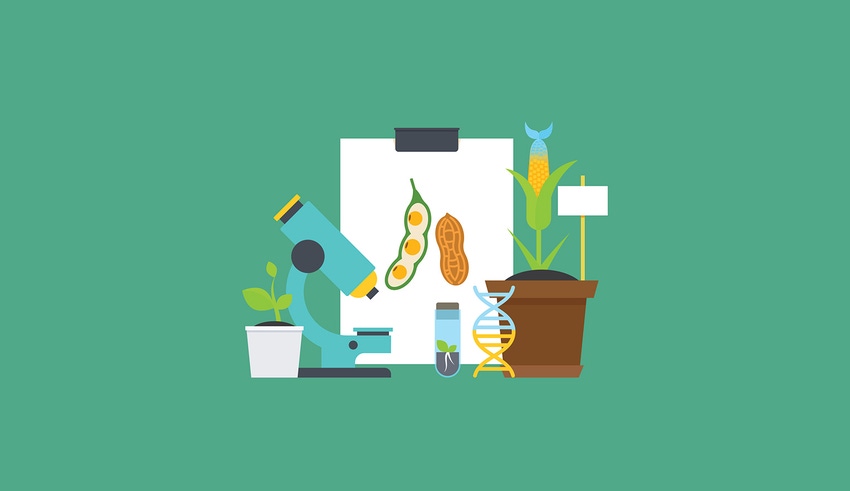Project's goal is to develop compelling scientific strategy for food and agricultural research for next decade and beyond.
May 11, 2017

The National Academies of Sciences, Engineering & Medicine announced that it is launching "Science Breakthroughs 2030: A Strategy for Food & Agricultural Research," a new study to identify ambitious scientific opportunities in food and agriculture made possible by incorporating knowledge and tools from across the science and engineering spectrum.
The year-long project will involve the scientific community in describing research directions with high potential to open new frontiers for food and agricultural science.
The goal is to develop a compelling scientific strategy for food and agricultural research for the next decade and beyond that would stimulate transformational change in the food and agricultural system by catalyzing new research directions and partnerships, attracting new research talent, stimulating entrepreneurial activities, increasing funding opportunities and, ultimately, opening new paths to a safe, healthful and sustainable supply of food and fiber.
"Breakthroughs 2030" will respond to the numerous reports issued by the government and non-governmental organizations (NGOs) on the food and agricultural system's relationship to public health, food security, national security, trade, economic development and the environment. Most of these reports emphasize the need to dramatically increase food production worldwide to feed a growing global population, according to the announcement.
By tapping the ingenuity and knowledge of the American research community, "Breakthroughs 2030" will produce a blueprint for how research can solve these major issues.
The initiative will be chaired by:
* Dr. John Floros, dean of the College of Agriculture and director of research and extension at Kansas State University, and
* Dr. Susan Wessler, distinguished professor of genetics and Howard Hughes Medical Institute professor at the University of California, Riverside; home secretary, National Academy of Sciences
"Given the challenges facing agriculture – from producing more food to using less land and fewer resources – we need innovation more than ever," said Thomas Grumbly, president of the Supporters of Agricultural Research (SoAR) Foundation, which helped conceive and fund the "Breakthroughs 2030" initiative. "Dr. Wessler and Dr. Floros have excellent reputations, and their backgrounds are ideal for the crucial task ahead."
"I look forward to the leadership of Dr. Wessler and Dr. Floros as co-chairs of this important effort to identify prime areas of scientific opportunity and spur collaboration across disciplines and stakeholder groups," said Dr. Sally Rockey, executive director of the Foundation for Food & Agriculture Research (FFAR), another major study funder. "I am confident that with these outstanding co-chairs at the helm, 'Breakthroughs 2030' will result in a compelling scientific vision for the future that incorporates the diverse expertise and innovative approaches being applied to address food and agriculture challenges."
This $1.12 million effort is being launched with financial support from more than 20 sources in the university, public health and agricultural sectors, as well as federal agencies.
Working through the National Academies independent study process, "Breakthroughs 2030" will involve input from hundreds of researchers and stakeholders to determine a vision that capitalizes on emerging trends, encourages greater interdisciplinary research and informs the decisions of policy-makers and academic leaders.
Food and agriculture research stakeholders will be invited to participate in the process through the project's forthcoming interactive website and a town hall planned for this summer. A scientific conference in Irvine, Cal., in September 2017 will further engage the greater scientific community in the U.S.
The study needs input from scientists of all disciplinary backgrounds to understand where opportunities are emerging. The public is also invited to contribute to the discussion.
A public launch reception for "Breakthroughs 2030" is scheduled for 5:30 p.m. (Eastern) on June 14 at the National Academies of Science headquarters in Washington, D.C. For more information on the study and to sign up for updates, go to: http://nas-sites.org/dels/studies/agricultural-science-breakthroughs.
Current funders include: SoAR Foundation, FFAR, Gordon & Betty Moore Foundation, Samuel Roberts Noble Foundation, Agricultural & Applied Economics Assn., American Farm Bureau Federation, American Society for Horticultural Science, American Society for Nutrition, American Society of Agronomy, American Society of Plant Biologists, American Soybean Assn., American Veterinary Medical Assn., Association of American Universities, Association of American Veterinary Medical Colleges, Association of Public & Land-Grant Universities, Crop Science Society of America, Federation of American Societies for Experimental Biology, National Cattlemen's Beef Assn., National Coalition for Food & Agricultural Research, National Corn Growers Assn., National Pork Board and Soil Science Society of America.
You May Also Like


.png?width=300&auto=webp&quality=80&disable=upscale)
